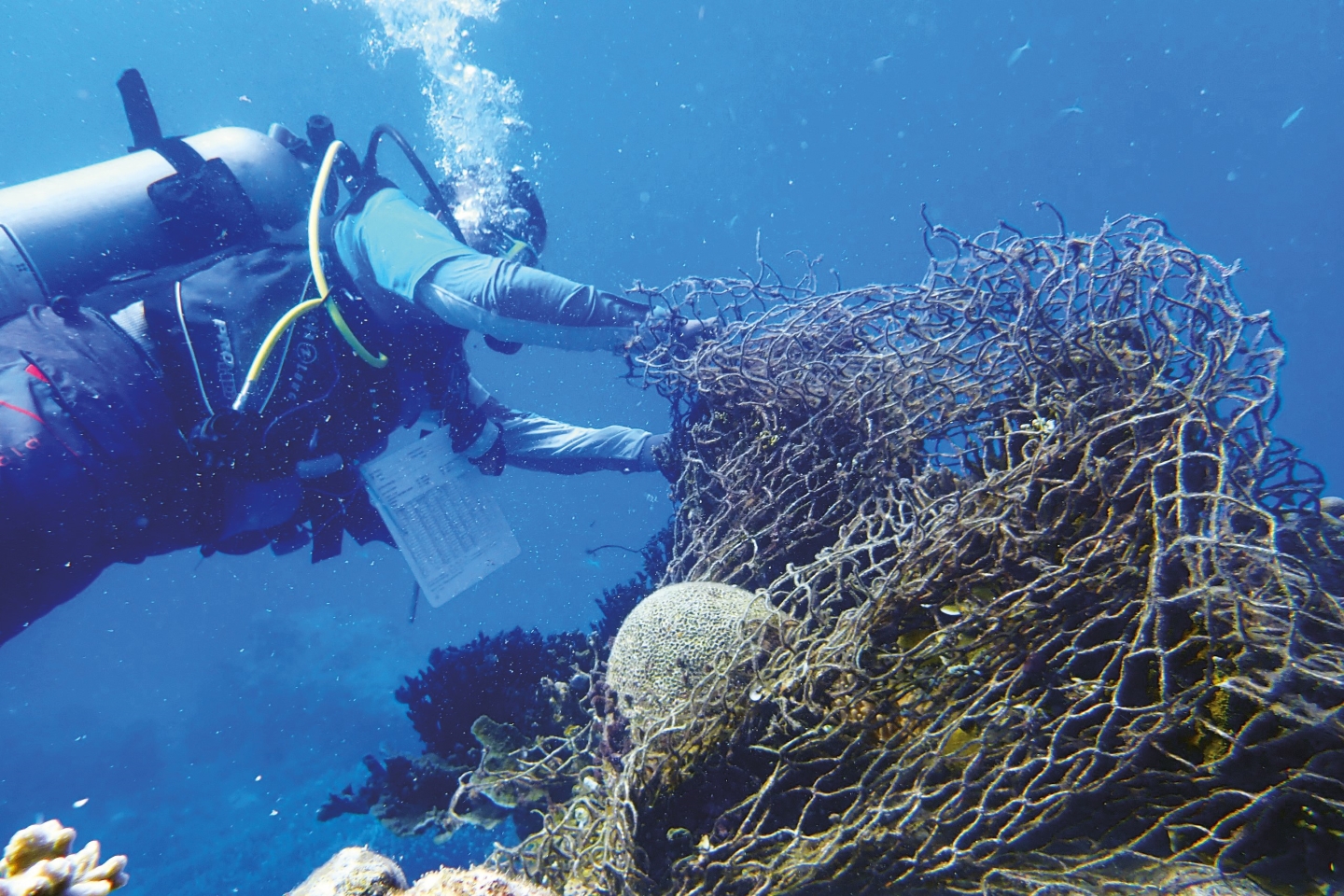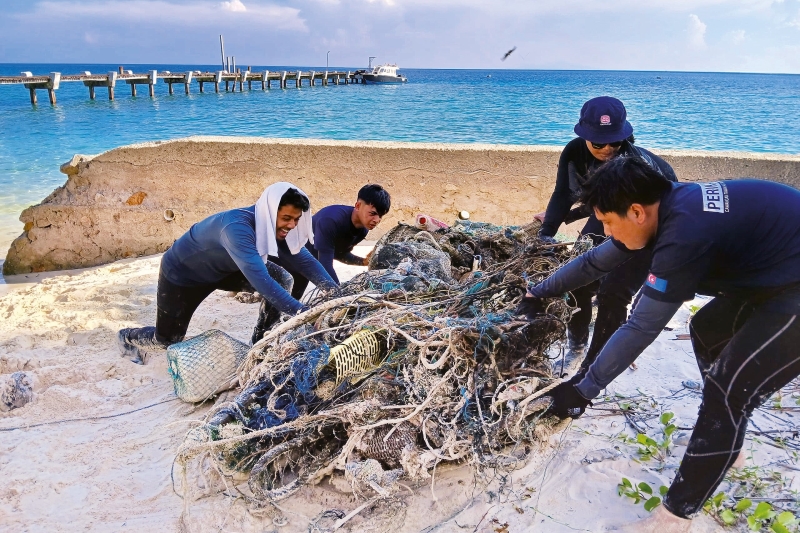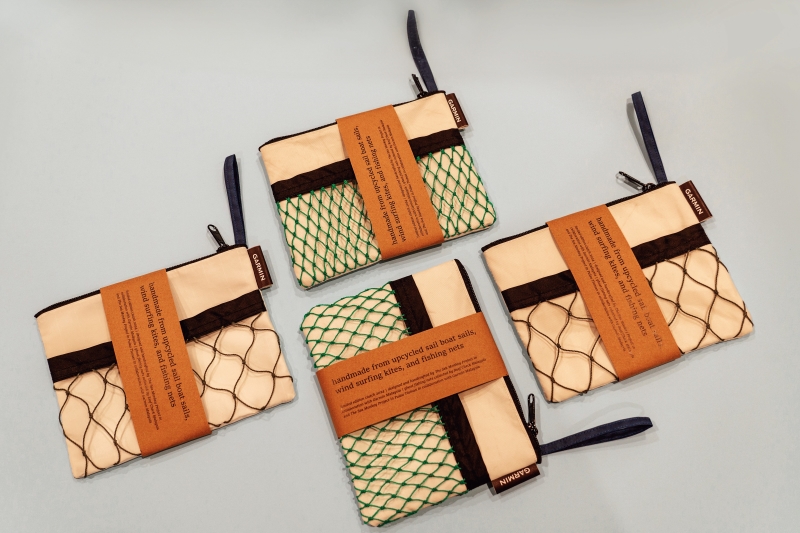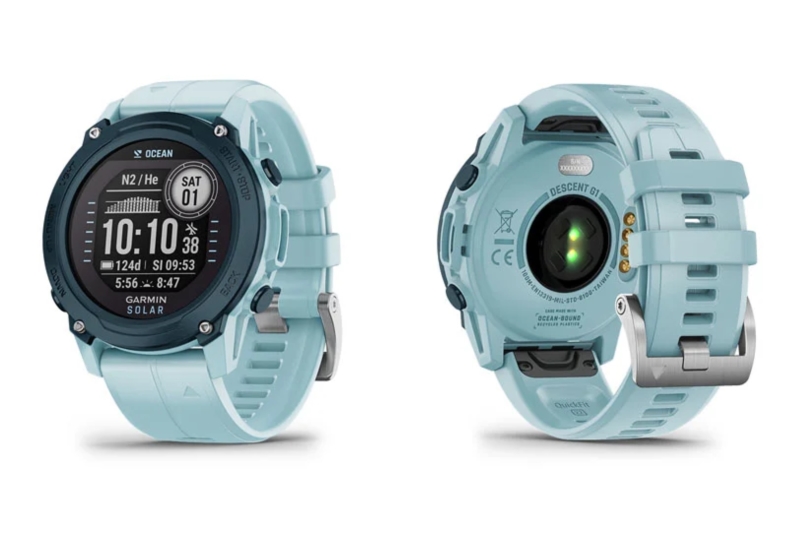
The collaboration between the companies is rooted in their shared mission to protect and create a healthy ocean (All photos: Garmin Malaysia)
As the creator of top-notch GPS navigation and wearable technology, Garmin’s business model has revolved around outdoor exploration, adventure and fitness since its inception in 1989. Hence, its products are chiefly engineered for audacious individuals with an active lifestyle and interest in the automotive, aviation, marine and related industries. “We are acutely aware of the importance of protecting the ecosystems that would largely impact these activities,” says Sheena Sim, marketing lead at Garmin Malaysia.
This year, Garmin partnered Reef Check Malaysia for a marine conservation initiative whereby the former pledged to contribute RM100 for every 1kg of ghost nets removed from local waters. The goal was to collect RM10,000 worth of nets from March to September. “We’re proud to share that we surpassed this target much earlier than expected, which is a testament to the impact of the programme and the dedication of those involved. This early success only motivates us to continue supporting Reef Check Malaysia and explore additional ways to contribute to the health and sustainability of our local marine ecosystems.”
The collaboration between the companies is rooted in their shared mission to protect and create a healthy ocean. “It aligns perfectly with our values of sustainability and responsible stewardship. We aim to not only support crucial conservation efforts but also inspire our community to engage in practices that safeguard our environment for future generations,” Sim says.
rcm_14.jpg

Ten trained divers were deployed to conduct underwater clean-ups and ghost net removal on the islands off Mersing in Johor. “Frankly, the logistics dictated where we worked to some extent — there had to be diving facilities available. It’s very difficult — and expensive — to move tanks, boats and equipment over large distances, so our focus was on areas where there is dive tourism. It’s not ideal, but it is realistic,” explains Reef Check Malaysia CEO Julian Hyde.
“The partnership with Garmin brings funding to the island teams and helps us strengthen and grow their capacity in terms of numbers, skills and awareness. Instead of just, for example, four people in Mersing doing the work, we now have 10 additional volunteers, so that’s a huge multiplier effect.”
Growing the crew has been a work in progress for Reef Check Malaysia. The expansion means the organisation will be able to tackle multiple marine conservation problems beyond the ghost net issue. Hyde stresses the importance of including local communities in the ocean protection projects. “Once you get them involved and they start to develop a better appreciation of what marine ecosystems are as well as the benefits they provide, they become more engaged in efforts to protect and conserve them. So you get better compliance with regulations, and it’s easier to introduce best practices for snorkelling guides, for instance.”
Reef Check Malaysia has coached a small number of people from five inhabited islands — Pulau Besar, Pulau Aur, Pulau Pemanggil, Pulau Sibu and Pulau Tinggi — in Mersing. “We work with them and local dive operators to remove nets that are reported either by divers or snorkelling groups. This is an important chain of islands, home to endangered dugongs and other species, host to the largest seagrass meadows in Peninsular Malaysia, and an important tourism destination.”
Fishing nets that are lost or abandoned in the ocean pose a significant threat to native organisms. Removing them allows sea creatures to swim freely and not get entangled in the braided rope that they are unable to detect by sight or sonar.
dsc06525.jpg

As for what happens to the gathered nets, Sim says: “We’re not stopping at collection — we’re committed to giving these harmful materials a second life.”
Garmin engaged The Sea Monkey Project to help manage the remnants creatively. “This transformation from ocean waste to functional, everyday items is at the heart of what we hope to achieve: a holistic approach to sustainability that doesn’t just address environmental challenges, but also offers practical solutions that benefit users.”
“We invited them to visit our workshop [near Pasar Seni, Kuala Lumpur] to see and learn more about our social enterprise. We had an engaging conversation about sustainability and upcycling, and discussed how we could reach their goals together with Reef Check Malaysia to make positive environmental impacts while bringing unique upcycled products to life,” says The Sea Monkey Project
co-founder Carlos Steenland.
The company has designed a limited-edition clutch to complement Garmin’s dive watch, using the ghost nets and other materials accumulated during the seven-month programme. “As you can imagine, handcrafting goods from upcycled materials is a labour-intensive process. After all the ghost nets, fishing ropes, boat sails and watersports kites have been collected and cleaned, we consider them raw materials from which to create something unique. Our production team carefully cuts, assembles and stitches each bag by hand in approximately 1.5 hours.”
garmin_descent_g1_solar_-_ocean_edition.jpg

This is not the first time Garmin has successfully reimagined discarded objects, turning them into new utilitarian items. Its recent launch, the Descent G1 Solar - Ocean Edition, is an innovative dive-focused wearable developed from recycled ocean-bound plastic. “The smartwatch allows diving enthusiasts to live out their passion for the sport with an advanced diving computer while expressing their love for the deep through responsible consumption. This is another step to leverage our technological expertise and resources to play a significant role in marine conservation through innovative solutions that are impactful moving forward,” says Sim.
Working together with organisations that share the same values and boast different expertise is important to achieving a greater good. “Our collaborations demonstrate how businesses can play a pivotal role in environmental protection while simultaneously promoting innovation. By turning ocean waste into valuable products, we’re showing sustainability is not only about conservation but also creativity and resourcefulness.
“Ultimately, we hope this initiative serves as a model for future projects, inspiring others to adopt similar practices to repurpose waste into something beneficial, both for the planet and people. This could also be used as a tool to raise awareness about marine conservation in a unique way,” Sim remarks.
This article first appeared on Oct 21, 2024 in The Edge Malaysia.


